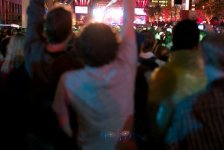newsgrunt
Well-known
emraphoto,
here are a couple of photos of the modified Nikon and a photo taken with the camera.
http://www.flickr.com/photos/14296855@N07/3677987489/in/photostream/
http://www.flickr.com/photos/14296855@N07/3677987595/in/photostream/
http://www.flickr.com/photos/14296855@N07/3677962005/in/photostream/
here are a couple of photos of the modified Nikon and a photo taken with the camera.
http://www.flickr.com/photos/14296855@N07/3677987489/in/photostream/
http://www.flickr.com/photos/14296855@N07/3677987595/in/photostream/
http://www.flickr.com/photos/14296855@N07/3677962005/in/photostream/


